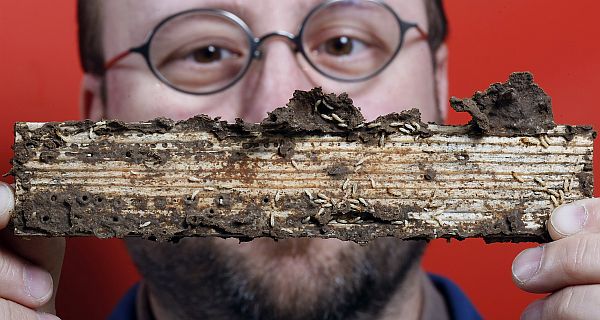
Paradoxical, is it not? An insect as hated as a termite is, for its notorious activities inside the wooden beds of households, can be a source of immense utility to mankind, especially in today’s scenario of extreme scarcity of affordable energy. Now, who can think of a termite is a useful insect? Well, researchers at the Purdue University have legitimately proved it!
At this point, it must be remembered that every organism has the capability to break down the food it eats into smaller digestible particles, which are further degraded into molecules with the help of enzymes, either secreted by the organism itself, or by the symbionts present inside its guts. Remember the role of lactobacillus inside human guts?
Exactly the same role is played by bacteria present inside termite guts. Very unlikely of the previously thought fact that it is only the symbionts that produces enzymes for wood digestion, both the host termite and the symbionts bacteria produce enzymes with an equivalent effectiveness that breakdown the cell walls of the wood cells. The result is a high amount of biofuel.
The mechanism that is at work can be explained somewhat as follows. Three enzymes work complementary on three different parts of the biomass. Two of them help in releasing glucose and pentose from the biomass. These are two simple sugar molecules that are present in almost all sources of carbohydrates.
The third enzyme acts on lignin, a hard protein covering that binds the cell walls of wood cells. It is the toughest barrier to overcome in order to release the sugar molecules inside the cell. These three enzymes are released by the host termite and the symbionts present inside it. These act in unison to provide a marvellous access to an important biofuel – ethanol.
Ethanol is produced by fermenting sugars. Scharf and his associates have isolated the gene responsible for the production of these enzymes in termites. This gene has been inserted into a virus that has been inoculated into caterpillars. These caterpillars have been found to produce enormous amounts of the enzymes.
Scharf and his team, along with Chesapeake Perl, a protein production company, have also succeeded in preparing the synthetic versions of these enzymes. A wonderful discovery made at an absolutely critical time. Now that is some real science working for human welfare, all thanks to termites!
Via: Purdue University [Press Release]




